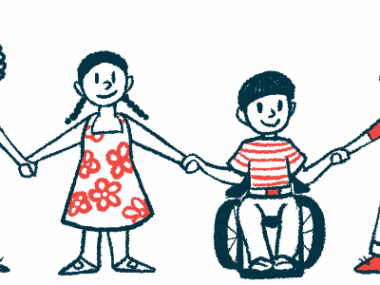More resources about fertility needed for men with CF
Most surveyed with children said they needed medical assistance to conceive
Written by |

Men with cystic fibrosis (CF) are generally knowledgeable about how their disease affects fertility, but they still want to be able to talk about their reproductive options with their providers, who may be uncomfortable or unskilled with these discussions, particularly with teens..
The findings indicate a need for more resources that can provide information, researchers said in the study, “Fertility and family-building experiences and perspectives of males with cystic fibrosis,” which was published in Reproductive Biology and Endocrinology.
In almost all men with CF, the tubes that carry sperm out of the testes during ejaculation are dysfunctional or entirely absent. As a result, there is no sperm in the semen, so it’s not possible to conceive a child via intercourse. Since their testes do make sperm, men with CF can have children using assistive reproductive techniques where their sperm are retrieved from the testes.
Although family planning can be complex for people with CF, there are little data on how men with the disease navigate family planning. Here, scientists surveyed 532 men with CF who were receiving care at centers in the U.S. Among them, 99% identified as men and 94% percent as non-Hispanic white. Most respondents were working or in school, and about 1 in 3 were parents. Among them, 66% had biological children, while the others had become parents through adoption, fostering, or being a step-parent.
More resources needed for men with CF
Most of the respondents who had biological children reported needing medical assistance to conceive. About three quarters who had a biological child underwent sperm retrieval from the testes, followed by in vitro fertilization (IVF), Medical assistance for conception was usually done under the supervision of a doctor who specialized in fertility. The rate of male CF patients who needed medical assistance to conceive was higher than in the general U.S. population, which was expected.
About 4 out of 5 respondents said they knew males with CF are almost always infertile and a similar proportion knew they can have biological children in other ways. Although knowledge about these topics was fairly common, a third said no one had ever explicitly told them CF causes male infertility. Among those who did have a conversation about this, the mean age it took place was about age 19.
Most were taking CFTR modulators, but nearly a third weren’t sure if modulator treatment affects fertility. (It doesn’t.)
More than 90% preferred to have discussions about fertility with their CF care provider, with 76% having discussed at least some aspects of reproduction with their CF care team. A prior survey suggested CF pediatricians lack the comfort and skill at initiating and discussing male fertility with their patients, the researchers said.
“As [males with] CF desire reproductive health information during adolescence, interventions to improve pediatric clinician readiness, comfort, and skills around reproductive health care is warranted,” wrote the researchers, who said data indicate a substantial number of males with CF aren’t getting access to detailed counseling about fertility options. They called for efforts to have more resources to make it easier to get information. “Development of patient-facing resources related to family-building and provider and systems-based interventions are needed to assure that [males with] CF and their partners receive adequate reproductive health counseling and care.”
Although the data provide a glimpse into how male CF patients navigate reproductive choices, the researchers said more research is needed, particularly about how fertility treatments affect mental health and to identify barriers to access.







